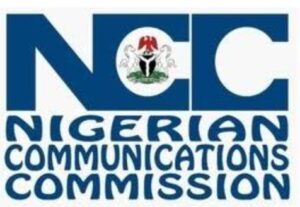

By Dada Ahmed.

Nigeria’s telecommunications industry recently celebrated a significant achievement with a new International Telecommunication Union (ITU) report, ranking the Nigeria Communications Commission (NCC) at an impressive 71 percent. This ranking, which experts have deemed well-deserved, was announced by Reuben Muoka, Director of Public Affairs at NCC, in a statement.
Muoka says that the ranking reflects Nigeria’s progress in digital transformation, particularly in legal, policy, and governance frameworks, positioning the country alongside global leaders like Germany, Finland, and Singapore.
In the report conducted by the ITU, the United Kingdom’s Foreign, Commonwealth & Development Office (FCDO) and the Nigerian Communications Commission (NCC), and unveiled by Nigeria’s Minister of Communications, Innovation and Digital Economy, Dr. Bosun Tijani in Abuja on Monday, Nigeria was ranked among Africa’s top seven BEMECS 5G Readiness Index, which represents the country’s readiness to deploy and adopt mass-market 5G networks,Mouka also revealed.
Titled, Collaborative Regulation: Accelerating Nigeria’s Digital Transformation, and presented at the Digital Economy Complex, Mbora, Abuja by ITU’s Kagwira Nkonge, the report, among other things, presented a case study for ‘collaborative regulation review to assess and support Nigeria’s transition towards collaborative digital governance, evidence-based policy making and agile regulation in the digital economy.
The report, which was presented to a cross section of key industry stakeholders,industry stakeholders, including service providers, government agencies, representatives of multilateral institutions, West Africa Telecommunications Regulators Assembly (WATRA), Africa Telecommunications Union (ATU).
It was also among others, designed to complement existing cross-country benchmarks in which features of countries policy and regulatory environment are assessed.
Experts view this high ranking as a testament to Nigeria’s advancement in digital technologies and infrastructure.
The ITU’s ranking underscores Nigeria’s strides in internet infrastructure, digital policy development, and technological innovation. These advancements are seen as critical to leveraging digital tools for economic growth, improved public services, and enhanced global competitiveness.
The ITU, a specialized United Nations agency for information and communication technologies (ICTs), assesses countries based on criteria including digital infrastructure quality, digital literacy, regulatory effectiveness, and innovation adoption. A high ranking signifies strong digital access, efforts to bridge the digital divide, and supportive environments for innovation.
Telecommunications analysts argue that the NCC’s leadership has played a crucial role in achieving this ranking by promoting a robust digital transformation framework. This high ranking presents Nigeria with several benefits:
First and foremost,it will attract foreign investments as high digital readiness ranking signals to investors that Nigeria possesses a modern digital infrastructure, making it a more attractive investment destination.
The new ranking will also enhance investment opportunities as it will improve digital infrastructure and policies are expected to draw technology companies and startups seeking emerging markets with high growth potential.
Telecoms experts are confident that the ranking will foster global partnerships between Nigeria and other nations because she is now seen as a digitally ready nation with increased status that will facilitate international collaborations and position it as a viable partner for global technology initiatives.
The new development in the telecomms industry in Nigeria will also boost its economic growth believing that digital systems will be enhanced business operations streamlined, costs reduced and efficiency, improved and contributr minute to overall economic growth of the country.
Labour analysts are elated that the ranking will lead to creating job opportunities with the optimism that digital transformation will generate new jobs in tech-related fields to address unemployment, particularly among the youth.
By promoting innovation and entrepreneurship, a high digital readiness ranking encourages startup growth and innovation, driving entrepreneurial activity and economic diversification.
Improving global integration strong digital infrastructure facilitates better integration into global supply chains and markets, enhancing Nigeria’s role in international trade.
Overall, Nigeria’s high ITU ranking in digital transformation readiness is a cause for celebration. It reflects significant progress and potential, with implications for attracting investment, fostering economic growth, and enhancing Nigeria’s position in the global digital economy.
Dr. Aminu Maida, the NCC boss, his able management team and other stake holders deserve commendation for their effective leadership translating into significant milestone in advancing the course of Nigeria’s telecommunications sector to an enviable level.
Dada Ahmed publishes The Reporters.


